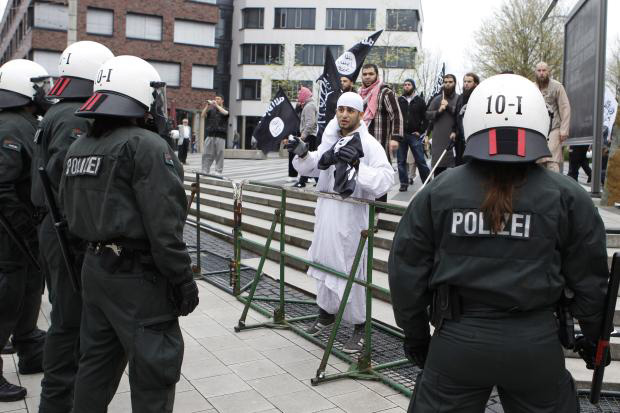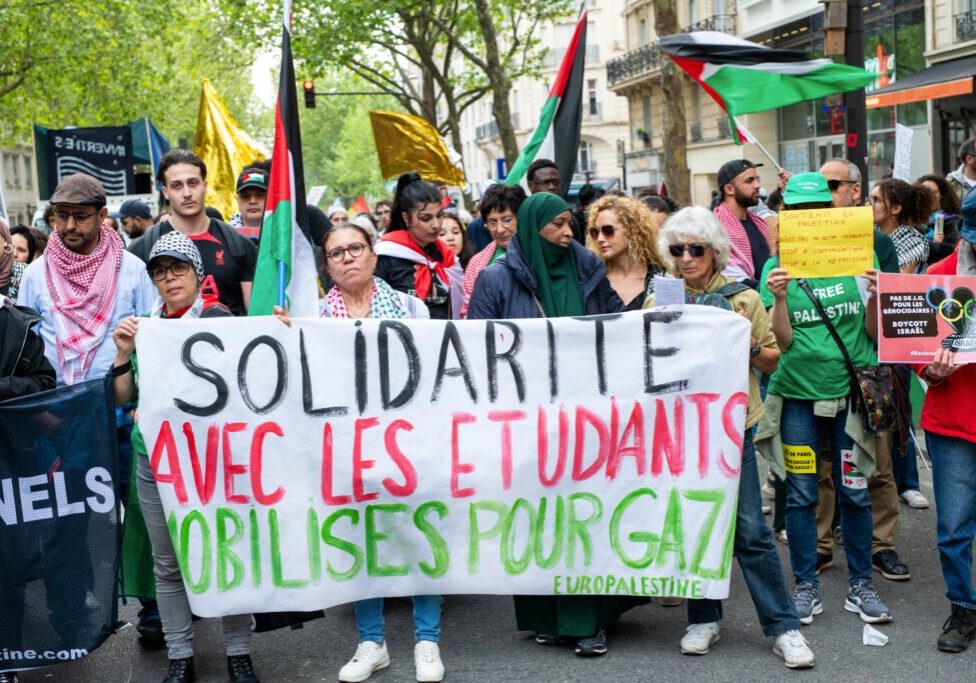Australia/Israel Review
Salafi-Jihadi Terror after the ISIS “Caliphate”
Aug 31, 2017 | Yoram Schweitzer

Yoram Schweitzer
At the close of three years since the announcement of the “Islamic State”, it is clear that al-Baghdadi’s gamble in declaring his establishment of an Islamic empire has failed, but his influence on the Salafi-Jihadi movement in the Middle East theatre and other regions has grown.
The June 22 explosion caused by Islamic State combatants in the Great Mosque of al-Nuri in Mosul, where the self-proclaimed Caliph, Abu Bakr al-Baghdadi, delivered his historic inaugural sermon to Islamic State fighters in 2014, is a good reflection of the Islamic State’s dire straits. At the same time, it underscores its intention to sow death and destruction and thereby exact a heavy price before its demise. Although the process of collapse has intensified, its ultimate duration is unclear, because the Islamic State still has a strong military presence and much ideological influence in various areas of the Middle East and beyond, and even has the potential capability to return to some of the areas from which it was expelled.
Despite the failure of its ambition to establish a new Islamic empire, the Islamic State has succeeded in rejuvenating the Salafi-Jihadi movement, after it appeared that the terrorist threat posed by the movement had passed, or at least waned. With the commencement of the Arab Spring events less than a decade after the September 11, 2001 attack, followed by the killing of bin Laden and many of the leaders of al-Qaeda and its affiliates, it appeared to many, including more than a few Western leaders, that the Salafi-Jihadi movement, led by al-Qaeda, had suffered a critical blow and was in strategic retreat. The appearance of the Islamic State, however, fostered a new belligerent spirit among many young Muslims. The basis for al-Baghdadi’s declaration of the establishment of the Islamic State reflected his belief that the geopolitical circumstances that sparked the upheaval in the Middle East enabled realisation of the vision of a new Islamic caliphate.
The Islamic State leaders chose to base the Islamic State on flagrant, public and widespread terrorism, in direct affront to universal values and norms, against their many opponents in Arab and Muslim countries, Western countries, and even their former partners in al-Qaeda and its allies in the Salafi-Jihadi movement. The brutality committed by the Islamic State, including mass executions, beheadings, and ethnic cleansing of minorities, broadcast on the social networks as part of its widespread propaganda, created a smokescreen for al-Qaeda and its affiliates, which they used to recruit many new operatives to their ranks, and even extend their activity to new theatres.
The formation of an international coalition in the war against the terrorist entity founded by al-Baghdadi culminated in the current situation, in which the Islamic State has lost a large part of the territories that it previously conquered, and many of its senior leaders – apparently including al-Baghdadi himself, according to some reports – have been eliminated.
Whether or not al-Baghdadi survived a recent attack by Russian warplanes, it is clear that his fate is sealed. Yet even without Caliph al-Baghdadi, the wider Salafi-Jihadi camp includes the Islamic State throughout the Middle East, the combatants of the terrorist organisations that accepted its sponsorship in Africa, the Maghreb, southern and central Asia, and Southeast Asia, as well as al-Qaeda and its partners. At this stage, all of these groups have profited, because they have grown in numbers and have strengthened their grip on extensive geographic areas in various regions of the world. This build-up has taken place against a background of the destabilisation of regimes, and the loss of legitimacy among national leaders.
The Islamic State, which acted in the name of Salafi-Jihadi ideology, found its way to the hearts of many Muslims – even more than those who had joined the ranks of al-Qaeda. This occurred not only in the Muslim countries, but also in the West in general, and particularly in Europe.
European countries have been faced with waging an intensive struggle on their home territory against terrorism motivated by a philosophy identified primarily with the Islamic State, which uses terrorism and constitutes a source of inspiration for terrorism carried out in its name in a number of channels. The first of these channels is terrorism initiated, managed, and carried out by the Islamic State. The second is terrorism managed remotely by European operatives who migrated to the Islamic State and joined its ranks, and who encourage local volunteers in Europe and send them to launch terrorist acts in its name. The third is terrorism carried out by those living in Europe who have never migrated to the Islamic State or joined its ranks, but are inspired by it and ascribe their terrorist activity to it out of a feeling of identification.
This campaign of terrorism is based on many hundreds of European citizens who are born Muslims or converts to Islam, and is expected to continue in the coming years. Its success or lack thereof, which will determine to a great extent the Islamic State’s ability to remain in Western public consciousness, depends mainly on the ability of the intelligence and security services in Western countries to thwart the Islamic State’s acts of terrorism.
Despite the bitter personal and inter-organisational conflict between the Islamic State and its partners on the one hand and al-Qaeda and its affiliates on the other, and the disputes concerning the correct strategy for realising their shared vision of establishing an Islamic caliphate, what they have in common is still much greater than what separates them.
Furthermore, it is likely that as the international pressure against the Islamic State and al-Qaeda increases, the chances of a rapprochement between them will also grow. The deaths of Islamic State leaders, particularly Caliph Baghdadi – whose successor can fill a functional role, but will not command the same spiritual authority – raises the possibility that all the organisations in the Salafi-Jihadi camp will combine forces.
Although a formal reunion between the Islamic State and al-Qaeda appears unrealistic, local ad hoc cooperation between groups and terrorist networks, and even more, movement of operatives or organised units across and within the various groups identified with this ideology, can certainly be expected.
Against this background, the challenge facing the international coalition formed in order to defeat the Islamic State remains intact. The stage of halting its advance, eliminating the territorial contiguity it achieved in its early years, and uprooting its rule may have reached an advanced stage, but the necessity of preventing it from regaining its strength and of weakening the entire Salafi-Jihadi camp is still of supreme importance. The international coalition against terrorism must therefore aim at achieving the following goals:
• The complete uprooting of the Islamic State from its bases in Mosul and western Iraq, and in Syria, mainly in Deir ez-Zor and al-Raqqah. It is also essential to take advantage of the momentum to remove the Islamic State from Libya and other regions in which it has a presence, and to sever the connections between it and local terrorist organisations outside the Middle East.
• Preventing the Islamic State from re-establishing itself in places from which it has been driven out.
• Strengthening local groups and helping them rebuild, following the destruction and the physical and psychological harm to the population inflicted by the Islamic State.
• Extending the momentum of the struggle against al-Qaeda and the affiliates which have gained strength in recent years and are eager to recruit to their ranks surviving Islamic State members looking for an alternative organisational framework to continue violent jihad.
• Halting planned terrorist operations in the West aimed at sowing fear among the public and causing governmental destabilisation, while causing friction between citizens and Muslim communities and generating hope among Salafi-Jihadi supporters that their actions and ambitions to re-establish the Islamic caliphate are not in vain. Preventing catastrophic terrorist attacks liable to drag the Western countries into a large scale military response against the perpetrators and supporters of the terrorist attacks is particularly important – because it will justify claims that the West is deliberately plotting against Islam.
In recent years, the Middle East has been an important theatre for violent friction between the global and regional powers seeking to enhance their influence in the region. The campaign against the Islamic State in particular and against terrorism in general is also part of the competition between them, and is waged in the framework of their efforts to promote their respective particular interests. Although it appears that the danger of the Islamic State’s expansion has passed, there should be no letup in the combined effort against it. The rise of the Islamic State in the name of the Salafi-Jihadi movement has again revealed the danger inherent in the ideology that guides that movement.
Yoram Schweitzer is an expert on international terrorism and head of the Program on Terrorism and Low Intensity Conflict at Tel Aviv University’s Institute for National Security Studies (INSS). Previously, he had a distinguished career in the Israeli intelligence community. © INSS, reprinted by permission, all rights reserved.
Tags: Europe






